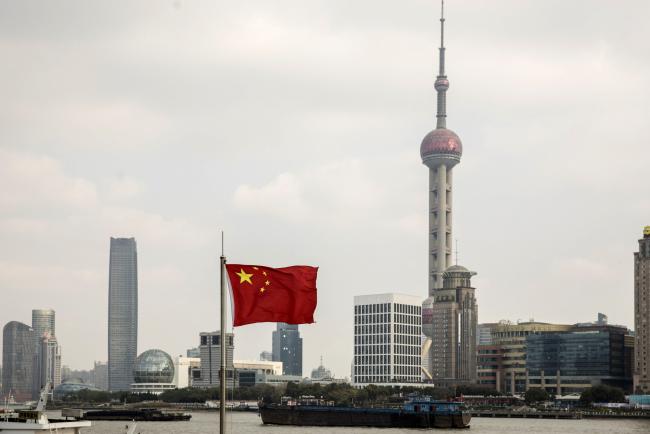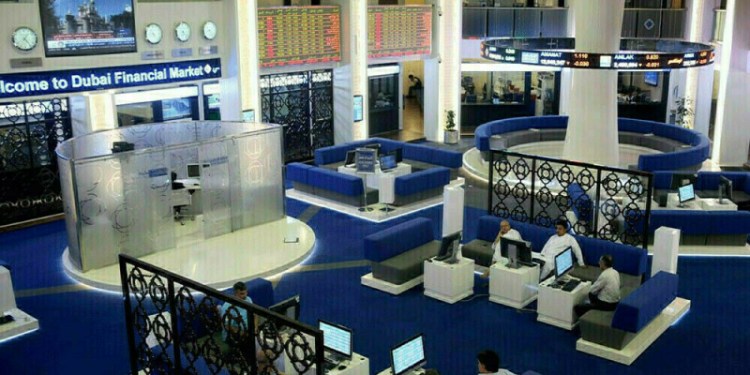 © Bloomberg. A Chinese national flag flies as skyscrapers of the Pudong Lujiazui Financial District stand across the Huangpu River in Shanghai, China, on Friday, Dec. 28, 2018. China announced plans to rein in the expansion of lending by the nation’s regional banks to areas beyond their home bases, the latest step policy makers have taken to defend against financial risk in the world’s second-biggest economy. Photographer: Qilai Shen/Bloomberg
© Bloomberg. A Chinese national flag flies as skyscrapers of the Pudong Lujiazui Financial District stand across the Huangpu River in Shanghai, China, on Friday, Dec. 28, 2018. China announced plans to rein in the expansion of lending by the nation’s regional banks to areas beyond their home bases, the latest step policy makers have taken to defend against financial risk in the world’s second-biggest economy. Photographer: Qilai Shen/Bloomberg(Bloomberg) — China’s mounting pile of distressed debt has elevated market players’ attention to one of the nation’s less obvious economic data points: the producer-price index.
With many of the debtors that ran into trouble in the past year coming from the industrial world, gauges of manufacturing strain are particularly important. Some analysts point to the PPI as a forward indicator of industrial profits, which in turn show the direction of manufacturers’ and miners’ financial strength.
The next PPI reading comes March 9, forecast to show factory-gate prices barely rose for a second straight month from a year before, in what would be the weakest two months since China emerged from industrial-sector deflation in 2016. Bloomberg’s factory inflation tracker is already negative.
“The near-deflationary PPI in January will feed directly into weaker earnings,” said Owen Gallimore, head of credit strategy at Australia & New Zealand Banking Group in Singapore. “Lower rated companies such as single-Bs will provide plenty of defaults in 2019.”
While President Xi Jinping’s administration has called for credit support to the private sector, which has traditionally had a tougher time getting bank loans in the state-dominated financial system, some borrowers are finding help not forthcoming. Some 13.6 billion yuan ($2 billion) of local currency bonds have gone sour this year, keeping pace with last year’s record tally of 120 billion yuan.
And a further total of $29.5 billion worth of bonds are facing pressures on repayment, according to company and ratings-agency statements compiled by Bloomberg.
“PPI deflation means it is harder for companies to pay back their debt — it is going to weigh on earnings growth,” said Larry Hu, head of China Economics at Macquarie Securities Ltd. in Hong Kong. “What is more important is how the government responds.”
Continuing strains mean an opportunity for the government to tackle the moral hazard of government-orchestrated bailouts, said Cui Li, head of macro research at CCB International Holdings Ltd. in Hong Kong. The People’s Bank of China has said that a certain amount of defaults can help improve pricing in the country’s bond market, the world’s third-largest.
Read more: Why China’s Bonds Are Defaulting at a Record Pace: QuickTake
Policy makers have championed fiscal steps to support growth, which may pay off in time and alleviate some of the disinflationary pressures coming through. Yet they may still carry seeds of financial pain down the road.
If “industry laggards manage to survive longer in an accommodative environment, then defaults may decline in the near-term but rise later,” Cui Li said. “In my view, corporate defaults will continue to rise,” she said.
Fusion Media or anyone involved with Fusion Media will not accept any liability for loss or damage as a result of reliance on the information including data, quotes, charts and buy/sell signals contained within this website. Please be fully informed regarding the risks and costs associated with trading the financial markets, it is one of the riskiest investment forms possible.
Source: Investing.com




























